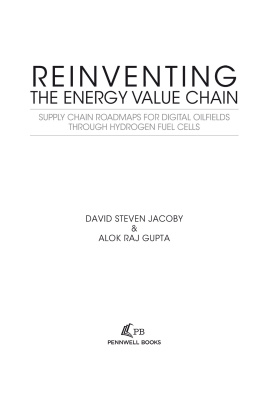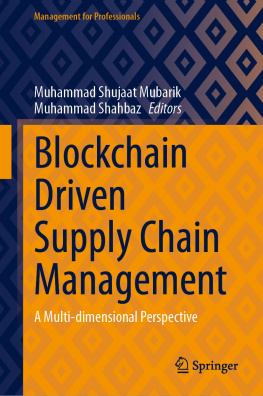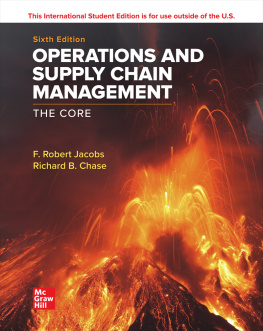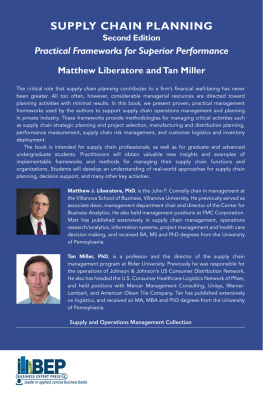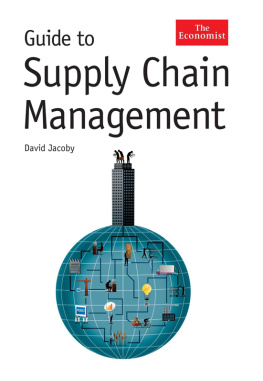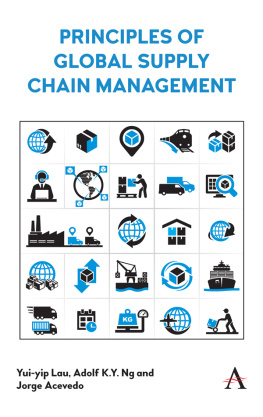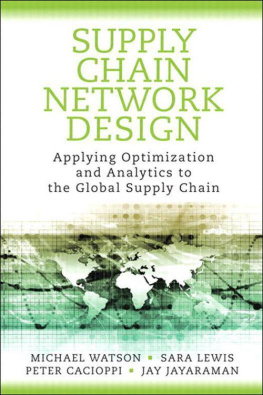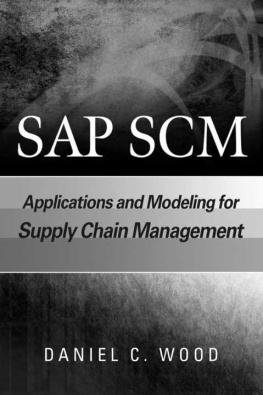Sommaire
Pagination de l'dition papier
Guide
Disclaimer |
The recommendations, advice, descriptions, and the methods in this book are presented solely for educational purposes. The author and publisher assume no liability whatsoever for any loss or damage that results from the use of any of the material in this book. Use of the material in this book is solely at the risk of the user. |
Copyright 2021 by
PennWell Books, LLC
10050 E 52nd Street
Tulsa, Oklahoma 74146 USA
866.777.1814
www.pennwellbooks.com
Publisher: Matthew Dresher
Images: gettyimages
Library of Congress Cataloging-in-Publication Data
Names: Jacoby, David, author. | Gupta, Alok Raj, author.
Title: Reinventing the energy value chain : supply chain roadmaps for
digital oilfields through hydrogen fuel cells / David Steven Jacoby and
Alok Raj Gupta.
Description: Tulsa, Oklahoma : PennWell Books, [2021] | Includes
bibliographical references and index.
Identifiers: LCCN 2021032022 | ISBN 9781955578004 (hardback) | ISBN
9781955578011 (ebook)
Subjects: LCSH: Energy industriesManagement. | Renewable energy sources.
| Business logistics.
Classification: LCC HD9502.A2 J35 2021 | DDC 333.79068dc23
LC record available at https://lccn.loc.gov/2021032022
All rights reserved. No part of this book may be reproduced, stored in a retrieval
system, or transcribed in any form or by any means, electronic or mechanical, including photocopying and recording, without the prior written permission of the publisher.
Printed in the United States of America
1 2 3 4 5 25 24 23 22 21
This digital document has been produced by Nord Compo.
Figures and Tables
Dedication
T his book is dedicated to my son Weston Fixler Jacoby for being more than I could ever be in so many ways, and for his inspirations on energy storage. I love you so much. And also, to my son Brent Fixler Jacoby and my daughter Camille Fixler Jacoby whose courage and wonderful radiant energy far exceed any quantitative units of measure used to describe the size of the largest energy giga-projects. Each of you has extraordinary talents and I cant wait for you to find, express, and exercise your awesome power and voice! And, of course, thank you Jessica for making it all possible and for making our family rich in so many ways.
Foreword
T he energy transition away from conventional hydrocarbon-based energy towards cleaner sources has been an inevitable fact for approximately the past two decades. Growing and ever more clear evidence of climate change, together with changing consumer expectations and increasing intolerance of overt environmental pollution, have accelerated a shift in market behavior and governmental policy towards green and sustainable energy. For the past decade, we have also started seeing the decoupling of GDP growth throughout the world from oil price, a significant sign of change and for many something that should have been a primer for a renewed focus on a more diversified energy mix.
We have seen demand drop from 2015 due to developments in shale oil, directional drilling technologies, and enhanced exploration and production strategies and approaches. These developments had obviously driven the supply up to such sustained levels, which, coupled with the growth in renewables, natural gas, and increased efficiencies on the demand side, has meant a very different outlook for oil & gas. The drop in CAPEX and OPEX in the past few years, and especially during the COVID year of 2020, has added such pressure on the market with demand destruction (finished products and crude) that it has no doubt started creating a new normal to come.
But here I am reminded of the wisdom of the late Ahmed Zaki Yamani, the former Saudi oil minister, who once said that as the Stone Age didn't end because we ran out of stones, likewise the Oil Age will not end with the end of oil. Thus what we are seeing today is a true structural change in the energy market and a transformation from conventional (hydrocarbon) fuels driven by a marked increase in investments in research and development in renewables, natural gas, and hydrogen besides others.
Climate change has become a reality beyond doubt and no longer is it a localized problem on issues in certain parts of the world or with an impact on certain species or certain socio-economic and environmental consequences. Issues related to climate change including wildfires, abnormal and sudden weather changes with aggressive storms; unprecedented snowfall in certain parts of the world; heavy rains leading to flooding, hurricanes, cyclones, and other significantly damaging episodesall these have become ever so much more frequent. The Paris accords and the SDGs have been a great step forward, unifying the approach and setting a direction globally with measured targets that many nations are working towards. Within this context, this book addresses aspects, and in some depth SDG 7: Affordable and Clean Energy; SDG 12 Responsible Consumptionand Production, and SDG 13 on Climate Action.
For leaders who are using this book, what is important is the understanding of the investment costs in the R&D space required and the wastes that the renewables can also generate. So, while the book promotes greatly the diversification in energy it steers away from some of the sentimentalism surrounding renewables and is thus more realistic about them. So, we must start with the end in mind, and as such understand comprehensively the life-cycle analysis and make careful and scientific comparisons between the technologies and management of different energy types. Much of the foundational thinking on which this book is built concerns the differentiation between the value chain and the supply chain thinking and is thus suitable for those working in the supply and demand spaces and in every part of the supply chain including producers, suppliers, and distributors of energy. The authors have built many of the frameworks on the previous work, which is well referenced, and they have also included a guide at the end of the book for additional research and reading.
Further, this book is intended to provide a purposeful set of concepts and principles furnishing those investing in energy projects with a good overall guide to aid them in their decision-making. It also provides a very timely discussion on the optimization of supply chains and systems using modern digitalization technologies and details the opportunities and the threats; it also covers economic and operational strategies. One such major risk is cyber security, which has in some industries been identified as the single most significant threat. Also addressed and illustrated in this book are great examples from the oil & gas and power industries through the in-depth review of case studies covering 12 segment areas in the conventional, alternative, and renewable energy sectors. Built on what is clearly decades of significant research and pragmatic in-depth experiential understanding, this book provides an excellent resource for those wanting to understand current practices and thinking in this space. While reviewing authors' contributions, I was struck by the way the authors have been able to look at supply chain dynamics, which helps one in this energy space really start to understand the holistic challenges and opportunities. Not that it was not understood before, but clearly the COVID pandemic and the impact it had on stripping demand globally in such a short space of time demonstrated the fragility of the supply chains and the energy markets during such a crisis that would have generally only been imagined in a world war.

